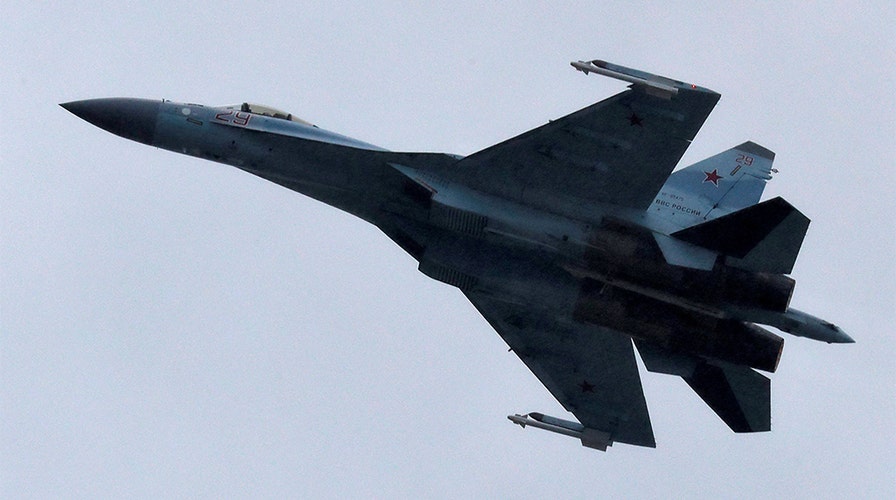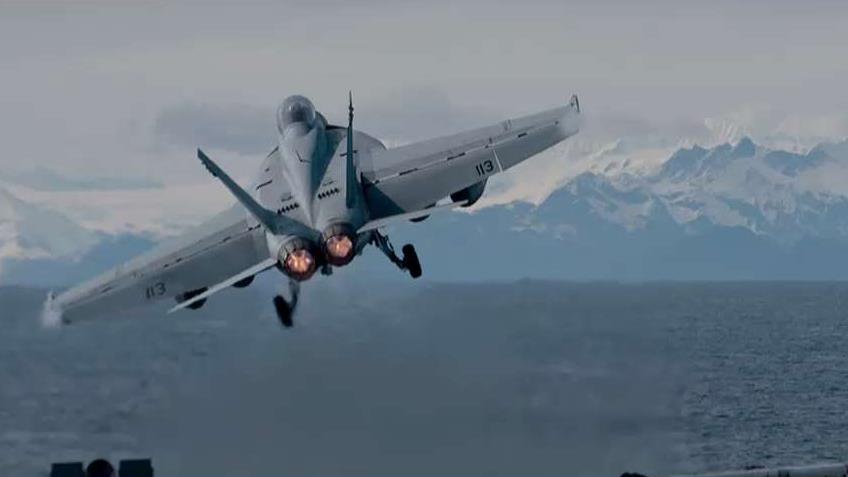Fox News Flash top headlines for June 4
Fox News Flash top headlines for June 4 are here. Check out what's clicking on Foxnews.com
A Russian fighter jet buzzed a U.S. Navy reconnaissance plane over the Mediterranean Sea three times on Tuesday, acting in an "irresponsible" manner, the U.S. Navy said.
The U.S. P-8A Poseidon aircraft was flying in international airspace at the time of the intercepts, Navy officials added.
The Russian SU-35 "conducting a high-speed pass directly in front of the mission aircraft" that caused turbulence "put our pilots and crew at risk," according to a statement from the Navy’s 6th Fleet.
RUSSIAN FIGHTER JET BUZZES U.S. SPY PLANE IN BLACK SEA, NAVY SAYS
The first and third buzz was considered safe, but the third, which lasted about 28 minutes, was unsafe, the Navy said. The entire encounter lasted almost 3 hours and the U.S. plane was not trying to "provoke this Russian activity."
"We expect them to behave within international standards set to ensure safety and to prevent incidents, including the 1972 Agreement for the Prevention of Incidents On and Over the High Seas (INCSEA)," the Navy said. "Unsafe actions increase the risk of miscalculation and potential for midair collisions."
The Russian interaction came days before the U.S. Navy is set to kick off large multinational war games in Europe known as Baltic Operations (BALTOPS)—used to send a message toward Russia.
This 47th annual exercise, led by the U.S. but founded on NATO principles, "is designed to improve training value for participants enhance flexibility and interoperability, and demonstrate resolve among allied and partner forces in defending the Baltic Sea region," according to a statement by the Navy in April.
Moscow flew long-range bombers with fighter escorts near Alaska over two consecutive days last month. Russia flies its bombers near Alaska about seven times a year, according to the North American Aerospace Defense Command (NORAD).
During the Cold War, the U.S. Air Force flew bombers armed with nuclear weapons from bases in the United States over Canada and the Mediterranean Sea on a daily basis. These flights no longer take place.
The U.S. has flown bombers near Russia only occasionally, but they haven't carried atomic weapons. American spy planes have continued to fly in the eastern Mediterranean Sea to keep tabs on Russian activity in Syria as well as in the Black Sea.
These flights increased after Russia annexed Ukraine’s Crimean Peninsula in 2014.
CLICK HERE FOR THE FOX NEWS APP
The Pentagon had considered adding thousands of Marines from Europe to the Middle East last month to bolster its forces against Iran but declined in the end because they were needed to deter Russia, according to multiple defense officials.
Less than 1,000 American troops were sent to the Middle East. Some 600 already serving in the region were extended and not sent home as expected.


